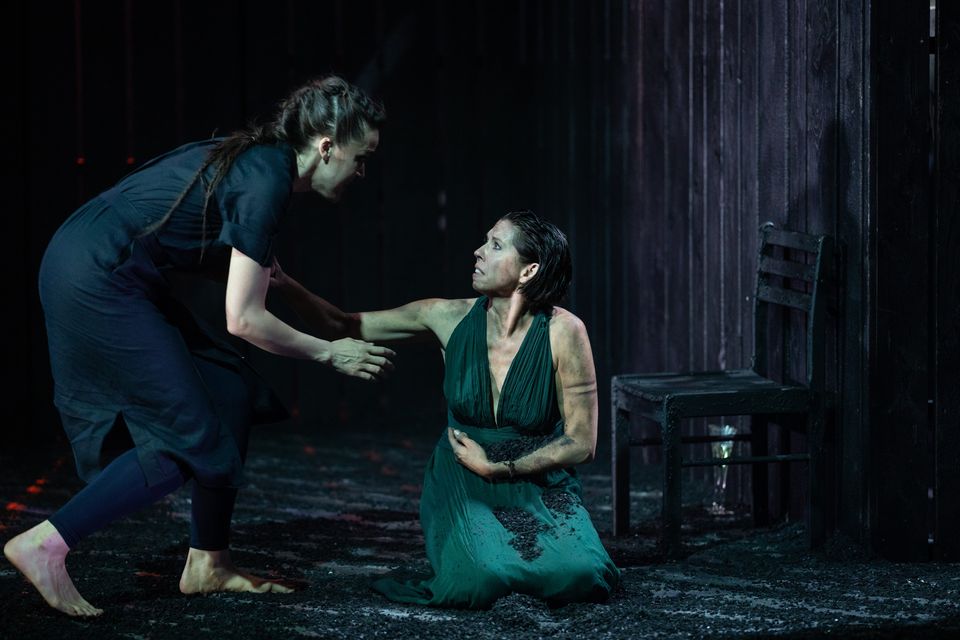
Theatre is a divisive and polarising medium, its nature demands it to be. That being said, adaptations in theatre are subject to mass scrutiny and have the potential to inspire major hysteria in the court of public opinion. Often, these reactions tend to be more dramatic than the show being debated on in the first place, and Dublin is no exception to this rule.
Last February, Puffin faced an explosive reaction to the sensitivity revisions made to many of Roald Dahl’s stories in conjunction with Inclusive Minds. The publisher explained the purpose of these revisions as reviewing “the language to ensure that it can continue to be enjoyed by all today”. That explanation did little to placate the Irish public, and so the unique nature of adaptations poses three core questions: when is a work of art finished and should it be altered after that point, what do we gain and lose by revising and adapting narratives into theatre, and how can this transfer be achieved successfully in the Dublin theatre scene?
Both Marina Carr and Roddy Doyle’s respective plays took to the stage in Dublin last year to answer this question. Carr’s adaptation of Sophocles’ Agamemnon, entitled Girl on an Altar, first debuted at the Kiln Theatre in London on May 19th 2022. It was revised a year later at the Abbey Theatre, with Annabelle Comyn directing. The play ran from July 8th to August 19th, and was dubbed “little short of a masterpiece” by the Sunday Independent. Carr made several serious revisions to the fifth century Athenian drama without foregoing any of the pathos the original tragedy explored.
Carr did not disappoint. As Nicholas Johnson, Trinity Associate Professor of Drama, has called it “theatre is for the living”, as Girl on an Altar shirks the original civic identity-defining intention of play and omits the moral didacticism that previously coloured the text. Carr decided to stray from the sunrise to sunset rule of ancient drama, in which all the events of the narrative take place within a 24-hour period. In doing so, she allows Clytemnestra, as well as the brutish Agamemnon, to dwell on their rage and betrayal for months after Agamenon returns from Troy, introducing a thematically fresh question for this play — can you forgive the unforgivable and can you humanise a monstrous decision?
The premise of the play is outlandish to the modern world, involving a daughter sacrificed in exchange for favourable winds to the plains of Troy and a husband seeking forgiveness for the act. Making this plot relatable to a 21st century Irish audience is no easy feat. Carr’s play remains firmly set in ancient Argos, but Clytemnestra has an Irish accent and uses colloquial phrasing like “I’m raging with him”. All the while, Agamemnon speaks in an English accent, implying an intentional power dynamic between the husband and wife immediately understood by the Irish audience. Carr’s creative use of the Irish dialect to inform an audience’s investment with the characters introduces new colour and freshness to the production.
Doyle’s reworking of J.M. Barrie’s Peter Pan had its run in the Gate Theatre from November 4th 2023 to January 14th 2024. By sticking with an extreme closeness to the original story, Doyle’s adaptation lacks the flare of innovation a reworked text should embody.
The most stark revision in this adaptation was the decision to replace Princess Tiger Lily and the original, stereotypical, portrayal of Native Americans in the tale with a ghost coven. Tiger Lily becomes queen of ‘the undead’ in Doyle’s play, and this role is so vague that I think the production would have benefitted from omitting the subplot altogether. The revision is understandable, but the execution was so confusing and random that at one point Pan lists off at least seven different synonyms for ‘undead’ in lieu of a proper explanation.
Changing the setting of the play to Dublin, other than informing the character’s dialects as well as the writing of the dialogue and a few gags here and there, did nothing to enhance the show as much as it seemed to be attempting to justify the production. With the premise of Peter Pan, and the impression bolstered by the Gate of an exciting, Irish reworking, it’s hard to believe there was no reference to Tír na n-Óg or other Irish mythologies. Low hanging fruit? Maybe, but it would have tasted sweeter than the nothing at all Doyle served up.
The biggest distinction between Doyle’s production and Carr’s was the care and consideration felt behind each decision made. In 2024, Dublin theatre would benefit more from thoughtful productions like Carr’s and less from the stifulling frustration Doyle’s reworking inspired. When an adaptation has put a serious nurturing hand to a piece, it translates and it is in this space that a production succeeds. But the polarising, knee-jerk reactions adaptations inspire inhibits this success completely. Storytelling has been around for over 40,000 years, the concept of total originality is like pixie dust, rare at best and a pipedream at worst. Look no further than Timothee Chalamet’s recent triumph in Wonka or Reneé Rapp’s world-changing portrayal of Regina George to see that adaptations are here to stay. You can fight the wave, or you can lean into the current and allow the pull of adaptations to create a space for creativity and originality within the structure of existing works.






